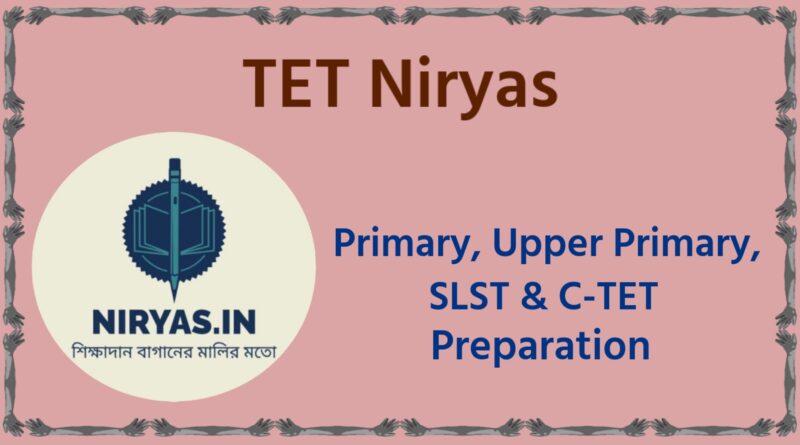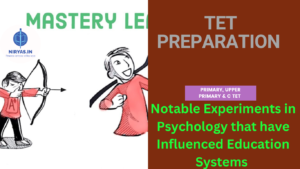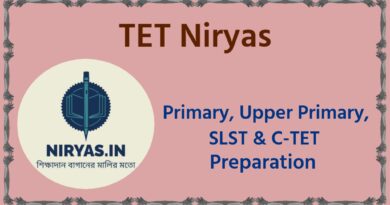Notable Experiments in Psychology that have Influenced Education Systems In English
Notable Experiments in Psychology that have Influenced Education Systems
The full meaning of the word TET is: Teacher’s Eligibility Test. According to the instructions of NCTE, currently, passing TET is one of the main conditions for employment in teaching from primary to higher secondary level. Keeping this in mind, we are highlighting our efforts to help competing students in the TET Niryas section, where Study Materials on the content of West Bengal Primary and Upper Primary TET, CTET Paper-I and Paper-II and SLST are available. Incidentally, the post called Notable Experiments in Psychology that have Influenced Education Systems discusses various information about different prominent Psychologist’s experiments:
Notable Experiments in Psychology that have Influenced Education Systems
1. Bloom’s Mastery Learning Experiment (1968) : Benjamin Bloom’s experiment demonstrated that students can learn at their own pace and achieve mastery of a subject when given the opportunity. This led to the development of mastery learning programs in education.
2. The Keller Plan (1968) : Fred Keller’s experiment demonstrated the effectiveness of personalized instruction, where students work at their own pace and receive individualized feedback and support. This led to the development of personalized learning programs in education.
3. The Pygmalion Effect (1968) : Robert Rosenthal and Lenore Jacobson’s experiment demonstrated how teacher expectations can affect student performance. This led to a greater emphasis on teacher training and the importance of teacher expectations in education.
4. The Spaced Repetition Experiment (1980) : Sebastian Leitner’s experiment demonstrated the effectiveness of spaced repetition, where information is reviewed at increasingly longer intervals to aid in long-term retention. This led to the development of spaced repetition software and apps in education.
5. The Chunking Experiment (1956) : George Miller’s experiment demonstrated how people can process and retain more information when it is broken down into smaller chunks. This led to the development of chunking strategies in education, such as breaking down complex information into smaller, more manageable pieces.
6. The Levels of Processing Experiment (1972) : Fergus Craik and Robert Lockhart’s experiment demonstrated how information is processed and retained at different levels, including shallow and deep processing. This led to the development of strategies to promote deeper processing and retention of information in education.
7. The Testing Effect Experiment (1909) : Henry Roediger and Jeffrey Karpicke’s experiment demonstrated how testing can improve retention and recall of information. This led to the development of testing strategies in education, such as frequent quizzing and testing.
প্রাথমিক টেট প্রস্তুতির জন্য ক্লিক করুনঃ
উচ্চ প্রাথমিক টেট প্রস্তুতির জন্য ক্লিক করুনঃ
8. The Generation Effect Experiment (1981) : Thomas Slamecka and Peter Graf’s experiment demonstrated how generating information from memory can improve retention and recall. This led to the development of strategies to promote active recall and generation of information in education.
9. The Collaborative Learning Experiment (1990) : David Johnson and Roger Johnson’s experiment demonstrated how collaborative learning can improve academic achievement and social skills. This led to the development of collaborative learning strategies in education, such as group work and peer-to-peer learning.
10. The Self-Efficacy Theory Experiment (1977) : Albert Bandura’s experiment demonstrated how people’s beliefs about their abilities affect their behavior and motivation. This led to the development of strategies to promote self-efficacy and motivation in education. ➣ বাংলায় পড়ুন


